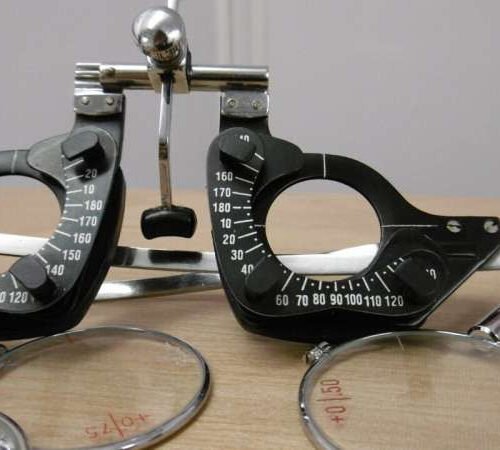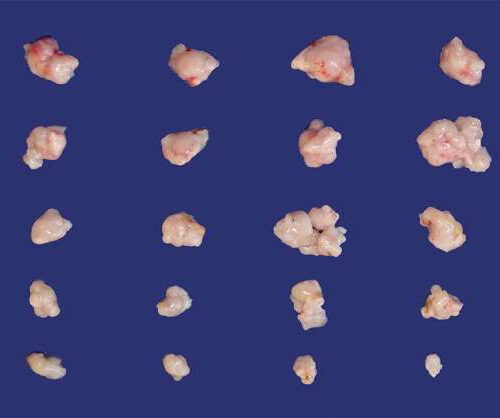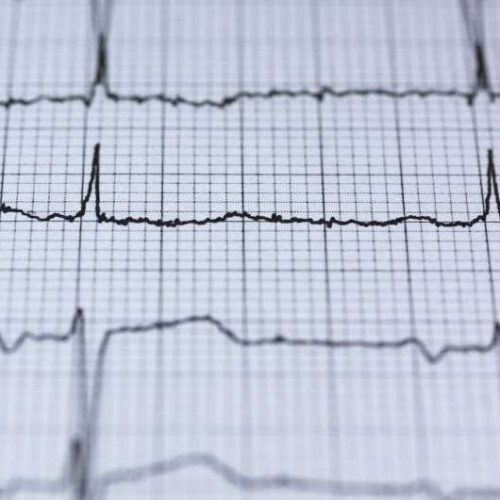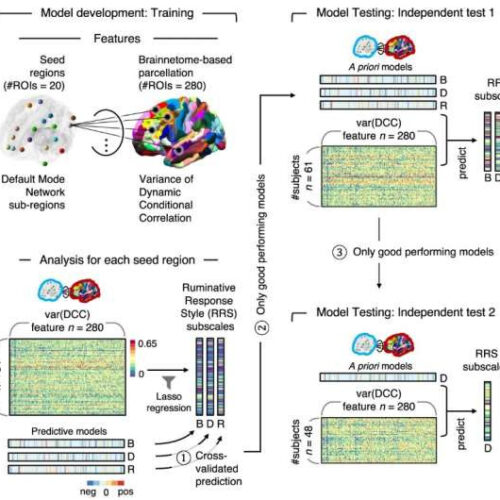by St. Jude Children’s Research Hospital (L to R) Co-corresponding author Mitchell Weiss, M.D., Ph.D., St. Jude Department of Hematology chair and co-corresponding author Jonathan Yen, Ph.D., St. Jude Therapeutic Genome Engineering director at a microscope in the lab. Gene therapy that alters hemoglobin genes may be an answer to curing sickle cell disease (SCD) and...
Higher average regional temperature linked to serious vision impairment among older Americans
by University of Toronto American adults aged 65 years older living in warmer regions are more likely to have serious vision impairment than their peers living in cooler regions, according to a recent study published in the journal Ophthalmic Epidemiology. Compared to those who lived in counties with average temperature of less than 50°F (<10°C), the odds...
Research shows novel cpairing could beat pancreatic cancer
by University of California – San Diego Mouse pancreatic tumors were significantly smaller after being treated with a combination of KRAS inhibitor MRTX1133 and ERBB inhibitor Afatinib (bottom row), compared to no treatment (top row) or being treated with Afatinib (second row) or MRTX1133 (third and fourth rows) alone. Credit: UC San Diego Health Sciences Mutations...
Researchers discover a new approach to boost the immune system
by Aarhus University Immunotherapy is a type of cancer treatment that uses the body’s own immune system to fight tumor cells. While much focus has been on engaging T cells for fighting cancer, less attention has been given to directing the complement system toward tumors. The complement system is an important part of the innate immune...
New AI tool beats standard approaches for detecting heart attacks
by University of Pittsburgh A new machine learning model uses electrocardiogram (ECG) readings to diagnose and classify heart attacks faster and more accurately than current approaches, according to a study led by University of Pittsburgh researchers that is published in Nature Medicine. “When a patient comes into the hospital with chest pain, the first question we ask...
A new model for predicting patterns of persistent negative thinking based on brain connectivity
by Institute for Basic Science Model development procedure. For the model development, the researchers first predefined 20 seed regions within the DMN. Then the variance of the dynamic connectivity (written as DCC in the figure) between each DMN seed region and 280 brain parcels was calculated from 84 participants. Using the variance of dynamic connectivity as...
Q&A: Challenges and advances in brain-computer interfaces
by Nathi Magubane, University of Pennsylvania Credit: Pixabay/CC0 Public Domain In a significant step forward in neurotechnology, companies that make implantable brain-computer interfacing (BCI) devices, such as Neuralink, have received approval from the U.S. Food and Drug Administration (FDA) to conduct human clinical studies. BCIs have been around for a few decades; however, many companies and institutes have...
DO 27% OF PATIENTS HAVE ‘COGNITIVE BIOTYPE’ OF DEPRESSION?
Cognitive tasks show that these patients have difficulty with the ability to plan ahead, display self-control, sustain focus despite distractions, and suppress inappropriate behavior. Imaging showed decreased activity in two brain regions responsible for those tasks. Because depression has traditionally been defined as a mood disorder, doctors commonly prescribe antidepressants that target serotonin (known as selective serotonin...
Poor sense of smell linked to increased risk of depression in older adults
JOHNS HOPKINS MEDICINE In a study that followed more than 2,000 community-dwelling older adults over eight years, researchers at Johns Hopkins Medicine say they have significant new evidence of a link between decreased sense of smell and risk of developing late-life depression. Their findings, published June 26 in Journal of Gerontology: Medical Sciences, do not demonstrate that loss...
Progesterone shown to decrease night sweats and improve sleep in perimenopausal women
by University of British Columbia Credit: Unsplash/CC0 Public Domain New controlled trial research documents that progesterone (micronized, oral) is effective at decreasing night sweats and improving sleep in perimenopausal women who have menstruated in the last year. Perimenopausal women most want treatment for these two symptoms. The findings are published in the journal Scientific Reports. Current guidelines...








